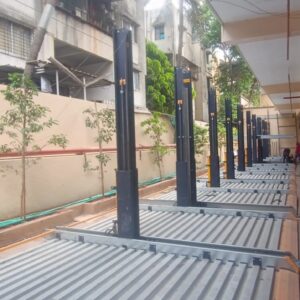As artificial intelligence continues to transform industries, many businesses are turning to custom AI agent development to gain a competitive edge, streamline operations, and enhance user experience. However, one of the first questions decision-makers ask before committing to this path is: What are the costs involved in custom AI agent development?
Unlike off-the-shelf solutions, custom AI development offers tailored functionality and deeper integration with your workflows — but that flexibility comes with its own pricing considerations. In this blog, we’ll break down the key cost factors involved in building a custom AI agent, helping you make an informed decision based on your goals and budget.
1. Scope and Complexity of the AI Agent
The first and most significant cost driver is the scope of your AI agent. The more complex the use case, the more time, expertise, and computing resources are required. For instance:
-
A simple customer service chatbot may cost between $10,000 to $25,000.
-
A highly complex AI agent with natural language processing, computer vision, and integration into multiple enterprise systems can exceed $100,000 or more.
Factors influencing complexity include:
-
Number of features
-
Required integrations (e.g., CRM, ERP, databases)
-
Decision-making capabilities
-
Real-time data processing needs
-
Multi-language support
-
Level of automation
2. Team Composition and Talent Costs
Building a high-performing custom AI agent often requires a specialized team, including:
-
AI/ML Engineers
-
Data Scientists
-
Software Developers
-
UX/UI Designers
-
Project Managers
-
DevOps Engineers
Depending on the region and experience level, hourly rates for these professionals vary:
-
North America/Western Europe: $80–$200/hour
-
Eastern Europe/Latin America: $40–$100/hour
-
South Asia (e.g., India): $25–$75/hour
Hiring a seasoned team or agency ensures quality, but it also increases overall development costs.
3. Data Collection, Cleaning, and Annotation
AI agents need data to learn and function properly. A large portion of development time — and cost — goes into:
-
Gathering relevant datasets
-
Cleaning and formatting data
-
Annotating datasets for supervised learning
-
Ensuring privacy and compliance (e.g., GDPR)
For data-heavy projects, this phase alone can account for 20–30% of total project costs.
4. AI Model Training and Infrastructure
Training AI models is computationally intensive and often requires powerful GPUs and cloud infrastructure. Costs here depend on:
-
Model size and type (LLMs, vision models, etc.)
-
Training time
-
Usage of platforms like AWS, Google Cloud, or Azure
Cloud compute resources may cost $500 to $10,000+ per training cycle, especially for large neural networks or frequent retraining schedules.
5. Software Architecture and Integrations
A well-built AI agent doesn’t operate in isolation. It must integrate seamlessly with:
-
Internal systems (e.g., ERP, HRMS, CRM)
-
APIs and third-party tools
-
User interfaces (mobile/web platforms)
Building secure, scalable, and maintainable architecture and integrations can cost anywhere from $5,000 to $50,000, depending on the depth and number of connections.
6. Testing, QA, and Optimization
Rigorous testing is essential to ensure your AI agent behaves as expected. Testing involves:
-
Functional testing
-
Performance benchmarking
-
Edge case handling
-
Bias and fairness evaluation
-
Ongoing optimization
This stage may consume 10–15% of the total development budget.
7. Maintenance and Continuous Improvement
AI models need ongoing support:
-
Monitoring accuracy and performance
-
Updating with new data
-
Patching security vulnerabilities
-
Adding new features
You should allocate 15–25% of the initial development cost annually for maintenance. For example, a $50,000 AI agent may cost around $7,500 to $12,500 per year to maintain and update.
8. Licensing and Compliance Costs
In some cases, AI development might involve third-party tools or frameworks with licensing fees. If your solution handles personal or sensitive data, compliance with regulations like GDPR, HIPAA, or CCPA can add extra legal and auditing costs.
9. Time to Market
While not a direct cost, development timelines impact your ROI. A typical custom AI agent takes:
-
2–3 months for simple prototypes
-
6–12 months for full-scale, production-ready deployments
Longer development cycles mean delayed benefits and increased interim costs like staffing, infrastructure, and opportunity cost.
Example Budget Breakdown
Let’s assume you’re building a medium-complexity AI sales assistant. Here’s a rough cost estimate:
| Cost Component | Estimated Cost |
|---|---|
| Requirements Analysis & Design | $5,000 – $10,000 |
| Data Preparation & Annotation | $7,000 – $15,000 |
| AI Model Development | $15,000 – $30,000 |
| Software Development & Integration | $10,000 – $25,000 |
| Testing & QA | $5,000 – $10,000 |
| Infrastructure & Tools | $3,000 – $10,000 |
| Initial Deployment | $2,000 – $5,000 |
| Total Estimated Cost | $47,000 – $105,000 |
Conclusion
The costs involved in custom AI agent development can vary widely based on the complexity, required features, data needs, and long-term goals. While the upfront investment may seem high, the potential ROI through efficiency gains, improved customer experiences, and better decision-making often justifies the expense.
Ultimately, viewing AI agent development as a strategic investment rather than just a cost will help your business unlock its full potential — driving innovation, scalability, and long-term competitive advantage.





